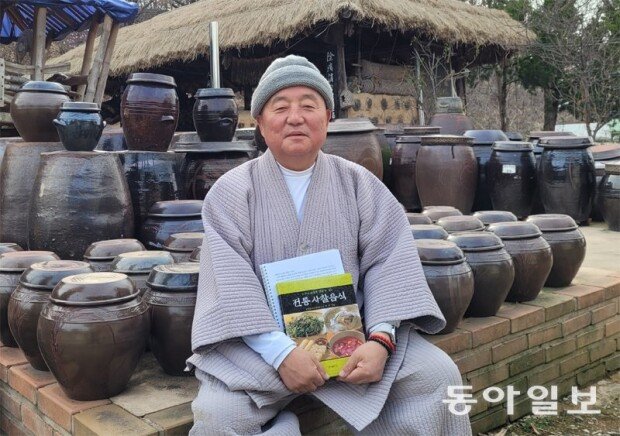Korea needs to conserve temple foods
Korea needs to conserve temple foods
Posted March. 29, 2024 07:39,
Updated March. 29, 2024 07:39

The Cultural Heritage Administration recently began a study verifying whether temple foods should be designated national intangible cultural assets. “Temple food is so common in countries like China or Taiwan that people find monks sitting in general restaurants strange,” said Buddhist monk and temple food master Jeokmoon, whom I met at Sudosa Temple in Pyeongtaek, Gyeonggi Province on Wednesday. “Meanwhile, South Korean temple food is not systematically organized despite the country’s long history of Buddhism.”
― Where do Chinese and Taiwanese monks go out to eat?
“There are so many temple food restaurants that they don’t have to go to general restaurants. There are over 8,000 temple foods in China, demonstrating how the country has systematically organized, studied, and conserved the foods.”
― You are the only bhikkhu (a male Buddhist monk) among six designated temple food masters.
“As a reporter for the school newspaper at Joong-Ang Sangha University, I had a chance to research the food, clothing, and shelter of Buddhism. I was having a hard time as there wasn’t much data on Buddhist monk’s robes. I finally found a master’s thesis and saw the writer’s comment thanking God. I was quite shocked. I thought if we, Buddhist monks, continue to remain disinterested, one day we will find ourselves looking for consultation on robe production from Christians. The situation with temple food was even more shocking. I was not able to find a single source of data on it. From that point on, I started to collect data by visiting temples, chief cooks of temples, and monks across the country. That was more than 40 years ago.”
― Temple foods have many benefits, including being healthy. However, they are not quite popular among people.
“Temple food restaurants became popular once. It is quite unfortunate that most of them closed even though they had potential. They hurried to open new locations without proper preparation. They should have opened after ensuring a stable supply of ingredients and well-trained chefs. Instead, they started just relying on a monk who cooked. As a result, they failed to make profits and had to close their business.”
Chin-Ku Lee sys1201@donga.com







